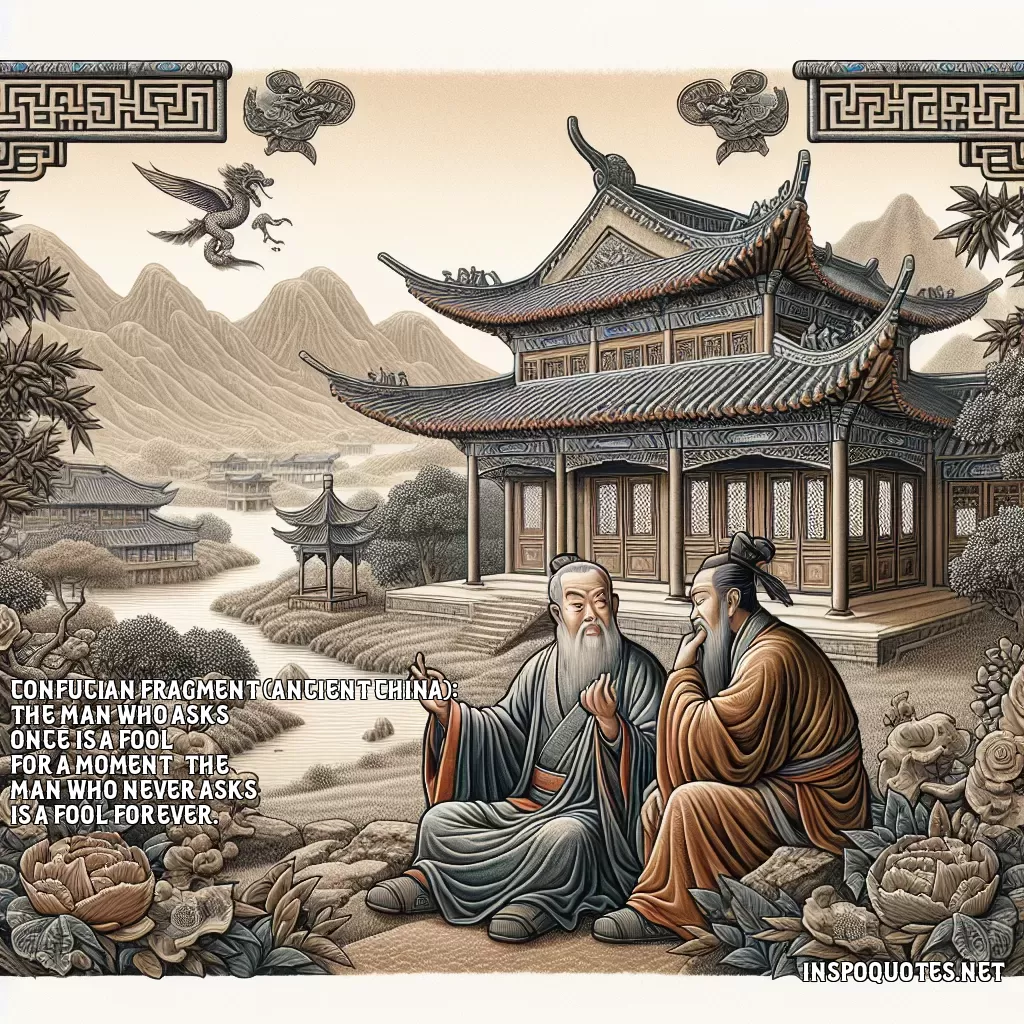
Confucian Fragment (Ancient China): The man who asks once is a fool for a moment the man who never asks is a fool forever.
Author: Confucius
👁️ 2 views

Confucian Fragment (Ancient China): The man who asks once is a fool for a moment the man who never asks is a fool forever.
👁️ 2 views
This Confucian fragment speaks to the importance of inquiry and the pursuit of knowledge. At first glance, the quote highlights the concept of vulnerability associated with asking questions. When someone asks a question, they momentarily reveal a lack of understanding or knowledge, which may be perceived as foolishness. This feeling is only temporary, however, because once the question is asked, it opens the door to learning and gaining understanding. Confucius, a renowned Chinese philosopher, emphasized the value of education, self-improvement, and the active pursuit of knowledge. In his teachings, he often outlined the path to wisdom as one involving humility and a willingness to acknowledge one's limitations. By asking questions, even at the risk of appearing foolish briefly, a person demonstrates a desire to learn and a commitment to growth. On the other hand, the latter part of the quote emphasizes the consequences of remaining silent and never seeking answers. When a person chooses not to ask questions out of fear, pride, or indifference, they may avoid the temporary discomfort of appearing uninformed. However, this choice results in a more long-term foolishness, as ignorance persists without the pursuit of answers and understanding. In essence, this quote encourages embracing the short-term vulnerability that comes with asking questions, as it ultimately leads to wisdom and growth. It suggests that the willingness to take risks in seeking knowledge is a crucial element of personal development. The fool, then, is not the one who asks and learns, but the one who remains forever content with their ignorance.
Quote By: Confucius
Confucius (551-479 BCE) was an influential Chinese philosopher and educator whose teachings emphasized morality, social relationships, and justice. He is best known for founding Confucianism, a system of thought that advocates for the importance of ethics in personal conduct and governance. His ideas on filial piety, respect for tradition, and the cultivation of virtue profoundly shaped Chinese society and continue to impact cultures around the world.
Bio added on: 2025-02-13 07:05:49